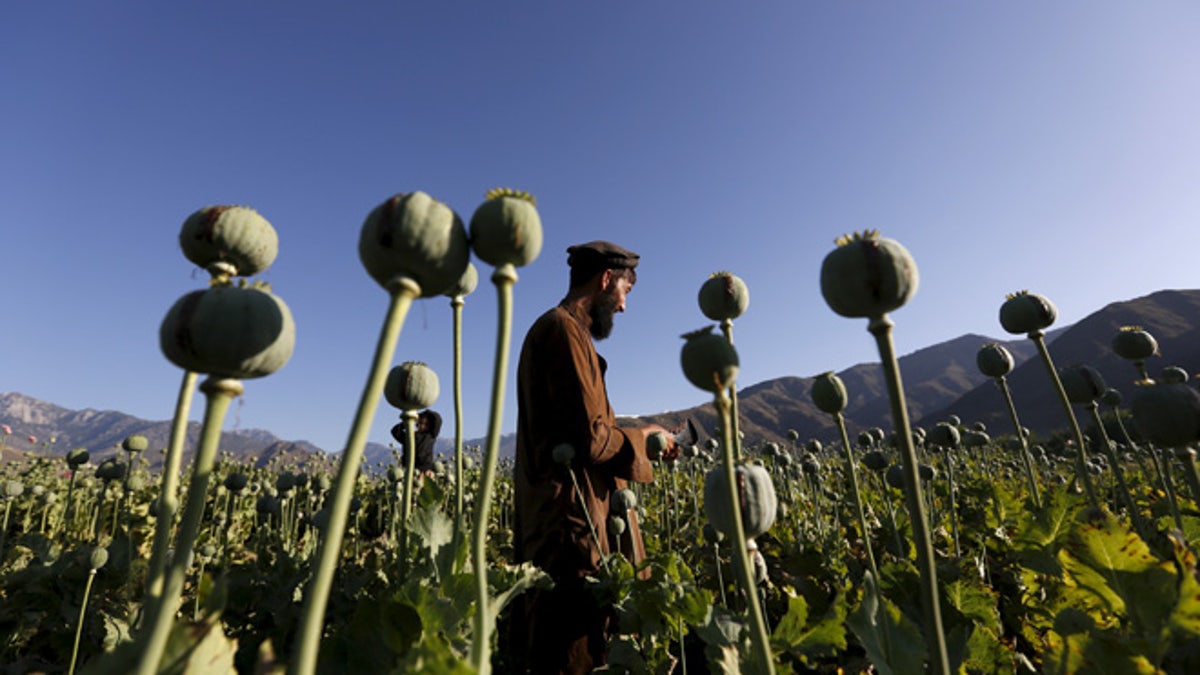
An Afghan man works on a poppy field in Nangarhar province, Afghanistan April 20, 2016. (REUTERS/Parwiz)
A banner poppy crop in Helmand this year will add significant revenue to the Taliban's coffers, a senior U.S. military spokesman based in Afghanistan told reporters at the Pentagon Thursday, as hundreds of U.S. troops remain in the volatile southern Afghan province where the Taliban has made gains since the fall.
“There is a concern that with this very good poppy crop that they had this year, it is going to result in the Taliban being able to turn that into money for their efforts,” said Brig. Gen. Charles Cleveland, a spokesman for U.S. and NATO forces in Afghanistan.
Cleveland added that there has been a decrease in Taliban attacks of late because April is the peak harvest time in Afghanistan.
“We have seen a bit of a lull in the fighting over the last month-plus, really because we think that a lot of the Taliban fighters have been out harvesting the poppy,” he said.
Cleveland said 700 to 800 U.S. troops remain in Helmand, the largest poppy growing province in Afghanistan. The Taliban recaptured large portions of Helmand this fall, forcing the U.S. military to reinforce the beleaguered Afghan Army, who have since pulled back from checkpoints and onto better protected bases.
Poppy plants produce opium, the main ingredient in heroin. The milky sap from the poppy plants is harvested days after laborers painstakingly put slits into golf ball sized bulbs. The residue the oozes out, collected and then dried is called opium.
An estimated 90 percent of the world’s opium comes from Afghanistan, while Burma and Colombia supply the rest.
Cleveland said the Taliban’s new emir, Mullah Mansour, has an extensive background in drug smuggling.
He also estimates there are now 30,000 Taliban fighters in Afghanistan, a 20 percent increase from 2009.
The U.S. military is forbidden from carrying out airstrikes against the Taliban except when they attack U.S. forces.
When asked by a reporter why the military was not allowed to strike the Taliban, Gen. Cleveland said those decisions are made in Washington, not Afghanistan.
“You're really referencing a larger policy question that, of course, we don't determine out here,” he answered.
